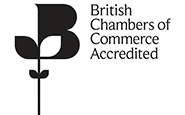THREE BILLS seeking to lower the Philippine corporate income tax and align it with that imposed by the country’s peers in Southeast Asia have been filed at the House of Representatives, according to documents obtained by BusinessWorld.
The corporate income tax bills — the first set filed before the 17th Congress — were mainly a revival of those proposed before the 16th Congress but should set off a series of debates while investors await the Duterte administration’s own version.
House Bills 1658, 1537 and 2379, filed by Aurora Rep. Bellaflor J. Angara-Castillo, Bagong Henerasyon party-list Rep. Bernadette R. Herrera-Dy and Marikina Rep. and Deputy Speaker Romero Fedrico S. Quimbo, respectively, aim to amend Sections 27 and 28 of the National Internal Revenue Code, which was crafted in 1997.
The identical proposals of Mses. Angara-Castillo and Herrera-Dy trim the prevailing 30% corporate income tax gradually until it reaches the target 25%.
The rate will be cut to 29% effective on Jan. 1 next year, to 27% on Jan. 1, 2018, and to 25%, by Jan. 1, 2019.
Under Mr. Quimbo’s bill, however, the corporate income tax rates will be cut outright to 25%.
Mr. Quimbo, who filed the bill yesterday, said he is “very confident that before the year is over, we should be able to have a new [tax] law.”
The two other measures, meanwhile, are being readied for committee discussions, having been filed both in mid-July, the Ways and Means Committee said yesterday.
Finance Secretary Carlos G. Dominguez did not respond to a query on when the Finance department will submit its version, but market expectations point to a filing within the third quarter.
Sought for comment, Peter Angelo V. Perfecto, executive director of Makati Business Club, said: “We are supportive of this move to make it more competitive with the rest of the ASEAN (Association of Southeast Asian Nations) regions.”
Benedict R. Tugonon, Tax Management Association of the Philippines (TMAP) president, said all versions “are geared toward the same direction.”
“25% is a good rate,” he said.
But as to what version he prefers, Mr. Tugonon said it depends on the “data and figures on revenue loss that the reduction will result.”
“We have to wait first for the comprehensive package which the DoF (Department of Finance) will submit in September, because we were told that this one has revenue positive measures as well. So if the revenue positive measures that will be proposed by the DoF have more than enough to offset the revenue losses from a direct 25% reduction, then we really don’t have a problem,” he said.
Mr. Tugonon said the 25% corporate income tax rate “would be a good number to consider,” making it parallel with the rest of ASEAN like in Indonesia and Malaysia.
Read more at BusinessWorld.


